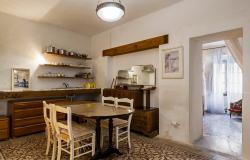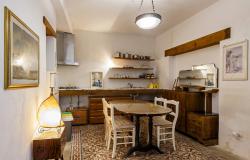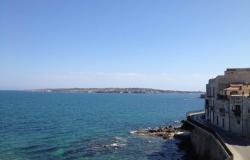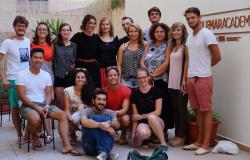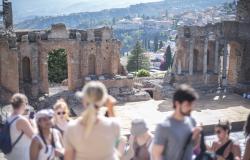Words by Pat Eggleton
Buongiorno a tutti and I hope you are feeling festive. If an Italian Christmas is special, a Sicilian one is a feast worthy of all the kings in Christendom and beyond, so I thought I’d share my memories of my first Sicilian Christmas with all of you:
1993 had been a very bad year for me, for I had lost my mother to a cruel illness that summer. One day, as she lay delirious in a Cardiff hospital, she suddenly said,
“I’m going, I’m going….”
“Where are you going, Mum?” I asked gently.
“I’m going, I’m going…. to a place called Syracuse” she whispered.
Of many sentences she uttered which, to all around her, had no meaning at all, that one made perfect sense to me, for earlier that year I had visited Sicily for the second time and, upon my return, had often talked to her about it and told her about the beauty of the clear, blue waters of the harbour of Syracuse. And somewhere in her confused brain, that memory remained.
 I was dreading the festive season that year but, to my surprise, when I opened one of my first Christmas cards, inside was an invitation from my friend Linda Churchill to spend it in Sicily. I didn’t hesitate – by hook or by crook I would go – and so it was that, on a stormy Christmas Eve, I landed again at Catania airport.
I was dreading the festive season that year but, to my surprise, when I opened one of my first Christmas cards, inside was an invitation from my friend Linda Churchill to spend it in Sicily. I didn’t hesitate – by hook or by crook I would go – and so it was that, on a stormy Christmas Eve, I landed again at Catania airport.
This was before the time of terrorist attacks and the fear of them and before Fontanarossa airport had its overhaul, so air travel was a more relaxed affair than it is today. So there I am, waiting for my case to appear on the carousel – mine is always last – when in walks Linda, looking every inch an Englishwoman in a long raincoat and carrying a large umbrella. Nobody takes the slightest bit of notice or attempts to stop her.
Her son drives us through torrential rain to Modica and I know I am in Sicily when tea is served with fresh lemons and there is the aroma of foccace cooking in the kitchen where papà Gino is at work. Later we eat them, as is traditional on Christmas Eve, and some are filled with a chilli pepper mixture and others with broccoli [as the Sicilians call cauliflower].
 We also partake of various meats in aspic – much beloved of the Modicani – a parmigiana of aubergines, peppers and parmesan cheese, and of course there is panettone and pandoro before the fruit. Then homemade torrone and its Sicilian cousin cobaita, or cubbiata in dialect, appear. Both words are corruptions of Arabic qubbayt and the sweet contains sesame seeds, which the Arabs brought to Sicily. It is also known as giugiulena. This is the Sicilian idea of “eating lightly” so that we can be ready for the next day’s feast.
We also partake of various meats in aspic – much beloved of the Modicani – a parmigiana of aubergines, peppers and parmesan cheese, and of course there is panettone and pandoro before the fruit. Then homemade torrone and its Sicilian cousin cobaita, or cubbiata in dialect, appear. Both words are corruptions of Arabic qubbayt and the sweet contains sesame seeds, which the Arabs brought to Sicily. It is also known as giugiulena. This is the Sicilian idea of “eating lightly” so that we can be ready for the next day’s feast.
On Christmas Day there are 30 of us and we mix traditions. After numerous antipasti there is pasta, for the uncles – “There are always uncles at Christmas”, said Dylan Thomas and I think this is true wherever you are – would think there had been a revolution if there were no pasta on Christmas Day.
Then there is traditional pollo ripieno – chicken stuffed with a rice and pistacchio mixture – but there is turkey breast as well, as a nod to the Brits. Salad is served afterwards and then there are heavenly, vanilla-scented oranges, which someone had picked from their tree that morning.
Every family has brought a cake, or a chunk of cobaita or a panettone and we enjoy these with liqueurs until it is 5pm. Finally Linda brings in a steaming Christmas pudding and Gino sets it alight, much to the curiosity of the Sicilians, who conclude that the British are truly mad, for they spend all that time making their strange “budino” and then they set fire to it!
No one minds when I shed a tear and I am hugged and know that I among friends who understand. “Queste cose…“ [“These things….”] says an aunt, offering me a tissue and she doesn’t need to say anything else.
Later that week we visit Siracusa and there, by the clear blue waters of the harbour, I bid a metaphorical goodbye to my mother.



